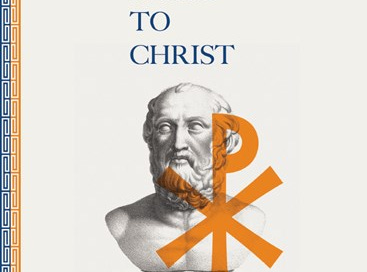Louis Markos
From Plato to Christ: How Platonic Thought Shaped the Christian Faith
Downers Grove, IL: InterVarsity, 2021.
Louis Markos has composed a terrific introduction to Plato for Christians with a view to showing how Platonism and Christian theology coalesces and the latter often builds on the former. I think it was Nietzsche who derisively called Christianity “Platonism for the masses.”
Markos gives a summary of pre-Platonic philosophy among the Sophists and Socrates. There’s a terrific exposition of Plato’s three main books: Republic, Laws, and Timaeus, plus a summary of Plato’s "myths. Thereafter, Markos does a great job of showing the significance of Plato for Christian theology from Origen to C.S. Lewis.
Whether you are reading the Gospel of John or Hebrews, Platonic philosophy does shape the world view, conceptuality, and language of NT authors. So this is a book I’d definitely recommend for anyone who wants to know a bit about the philosophical background of the NT.
My only complaint is that Markos can treat Plato as a type of pre-Christian, which Justin Martyr might agree with, but would make Tertullian seeth with rage. Plato is for Markos as a type of praeparatio evangelium, which is kind of true, but Plato’s Timaeus is more than Moses speaking Greek! Markos is aware of this and he soberly points out that there’s a yawning gap between the Platonic dialogues and the Bible in many respects. Still, it can come across as a bit like, Plato was one of us.
Otherwise a good read and one worth picking up if you want a primer on Plato for the study of Christian theology.





NT Wright is kind of a hater on Plato and Platonism in Christianity, saying it takes us away from the true context of the NT and therefore leads to misinterpretation. Is there a way to reconcile this view with the one presented in the book you have reviewed?
Idealism as presented by Plato gives birth to the other idealist including Christian fundamentalism. Without doubt, idealism has impacted the worldview of the western world. The impact has been so significant as to effect language, worldviews, and the translators of English versions of the Bible through redefining Hebrew words and ideas with Platonic definitions. H. Wheeler Robinson's New Testament commentary on Romans rejects the Greek philosophy for a biblical Hebrew one. Significant to the issue is the composition of man as body, soul, and spirit that is immortal as compared to a biblical one of man as a body with the divine breath or life spirit that whose existence is mortal. Man depends on the divine creative act of resurrection into a spiritual body. Seventy souls in Jacob's family went to Egypt. Plato would have had them leaving their bodies behind.